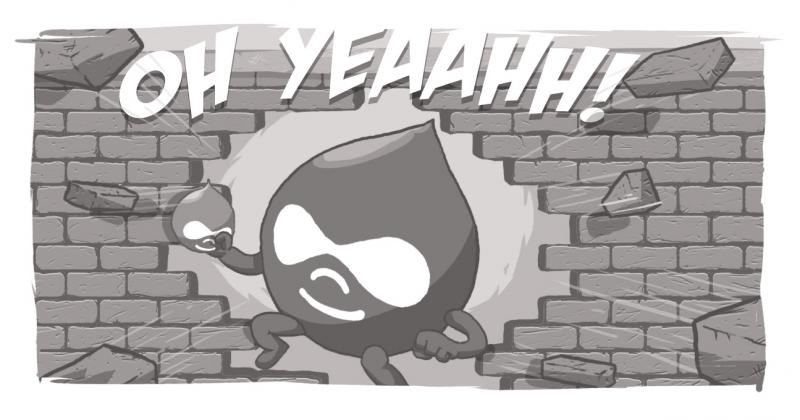We Have the Power -- and Responsibility -- to Ensure the Web We’ve Always Wanted is Open to All

We can create the web we want -- but, to quote Stan Lee, with great power comes great responsibility.
It’s one thing to create the web in our own image, but the ethical thing would be to create a web that’s open, accessible, and supportive of all.
Today's keynote address at this week’s Drupalcamp Montreal was presented by Lex Gill, a research fellow at The Citizen Lab, and a researcher at the Canadian Civil Liberties Association. In it she addressed what it means to be a technologist by taking us on a trip back in time, to the early days of the web. Digital Echidna is a proud Gold-level sponsor of Drupalcamp Montreal.
I’m of a certain vintage, so I remember the advent of the Internet. I was lucky enough to be the Editor-in-Chief of The Gazette, the then-daily student newspaper at what’s now Western University, when it went on-line. I remember the dial-up days; I remember losing connection thanks to call waiting. And I remember waiting forever for an image to download.
And, as Gill discussed, I remember the potential and excitement. The Internet was -- and still is -- a window to the world. We literally have the world in the palm of our hands. There are few unknowns anymore -- just things undiscovered.
But, as Peter Parker’s Uncle Ben said, with great power comes great responsibility.
Gill talked about how many people feel we’re living in a dystopian society and it’s easy to focus on the negative. But she encouraged us to embrace what made us fall in love with the web -- ugly Geocities sites and all. It’s that sense of self-discovery, self-expression, and potential.
But the Internet isn’t a Utopian society. It’s not even egalitarian! There is a world of information out there, but we all don’t have the same access to it. And it’s up to us, as creators on the web and curators of content to ensure that we work diligently to make sure we consider those who are less fortunate, more vulnerable, or requiring accessibility support when we design.
Going back to those ugly Geocities sites, those were created in our own image -- as much of the web has been over the years. We built what we liked, what we needed, and, largely, for audiences that were a lot like us.
But the internet has grown. It’s everywhere and almost in everything. With that ubiquity comes the responsibility to understand that internet isn’t an option any more -- it’s a way of life. However, it’s not just a way of life for those who choose to invest, or for those who are technologically savvy, but it’s also a fact of life for those who are financially stressed and cannot afford higher-speed internet access. It’s a fact of life for an aging society who must deal with dramatic change to their lives. It’s a fact of life for rural populations, where access isn’t so speedy. And it’s a fact of life for people who require accessibility support to access content.
The need for content is universal. The only difference is how we access it. And the ethical thing would be to focus on providing accessible solutions. As Gill explained, we have the power to determine who is able to access content.
It’s why accessibility matters -- even if you’re in a province not bound by AODA. It’s why best practices are best practices. It’s about thinking about the end user, focusing on their needs, and ensuring that they have access to content in the way that’s best for them -- meeting their needs, using tools and language that are intuitive to them, and allowing them the option to use it to better their lives.
That should be the web we’ve always wanted. And it’s certainly a Utopian society that we have the power to create.
Who was the keynote speaker at Drupalcamp Montreal
SUBSCRIBE TO OUR E-NEWSLETTER
 Subscribe
Subscribe


